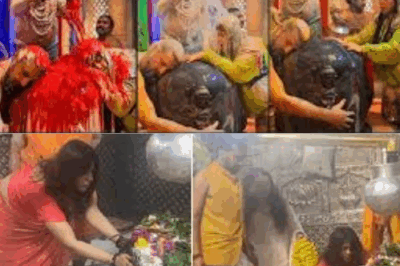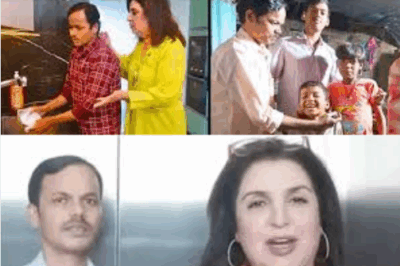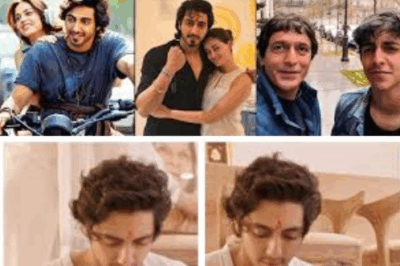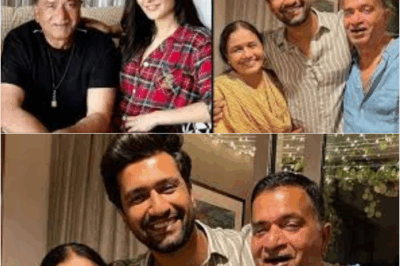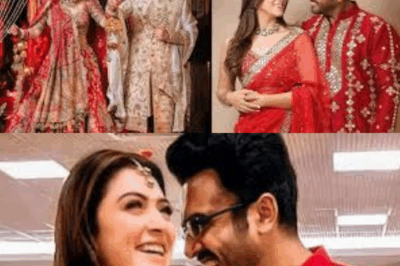Ekta Kapoor’s senior actress made a big accusation on Ekta Kapoor, why did she tell about the disgusting act that happened on the set
In a shocking turn of events that has stirred conversation across the Indian television industry, veteran actress Jayaa Bhattacharya has come forward with deeply personal revelations about her experience working under one of the most powerful names in Indian television—Ekta Kapoor. Jayaa, who rose to prominence with her role as Payal in the iconic TV serial Kyunki Saas Bhi Kabhi Bahu Thi, has broken her silence after years, shedding light on what she describes as systemic bias, mistreatment, and an unhealthy culture on Kapoor’s sets.
For years, Ekta Kapoor has been hailed as the queen of Indian television, producing blockbuster daily soaps that have dominated prime-time slots and redefined family drama narratives. However, her reputation for being a tough producer with high expectations has also come with whispers about the environment on her sets—an atmosphere some have called competitive, others, toxic. Jayaa Bhattacharya’s candid remarks have now pushed these whispers into the spotlight.
In a recent interview that has since gone viral on social media, Jayaa revealed how, despite her significant role in Kyunki Saas Bhi Kabhi Bahu Thi, she was consistently sidelined when it came to remuneration and recognition. Her character Payal, known for being Tulsi’s rival, had a substantial presence in the show and was instrumental in moving several key story arcs forward. Yet, according to Jayaa, her contributions were not appreciated or rewarded in proportion to her efforts.
Jayaa recalls a moment of frustration during her time on the show when she questioned the producers about her stagnant pay. While many of her co-stars saw their fees regularly increased, Jayaa’s remained the same. She claimed that after multiple requests, her payment was increased by a mere ₹1000—a sum she described as “insulting, considering the amount of work and emotional energy I was putting in.” The unequal pay, she believes, was not due to budget constraints but rather because she chose not to engage in sycophancy or backstage politics.
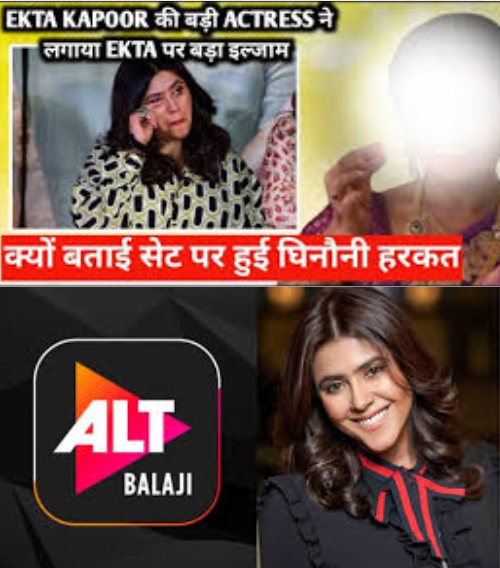
One of the more distressing aspects of her interview was the revelation that the culture on Kapoor’s sets heavily favored those who flattered the right people. “If you didn’t gossip with the creatives or participate in the inner circle of flattery, you were just seen as dispensable,” Jayaa said. This wasn’t just about being social—it was about survival. According to her, promotions, screen time, and even salary hikes were closely linked to how well actors got along with the core team and how willing they were to play the unwritten game of favoritism.
The actress emphasized that she always believed in focusing on her craft and letting her work speak for itself. But in an industry where visibility often trumps talent, this philosophy came at a cost. She was labeled difficult, aloof, and was subtly pushed to the margins. Eventually, the mental and emotional toll became too heavy to bear, and Jayaa decided to quit the show entirely.
Her decision to speak out has come at a time when Kyunki Saas Bhi Kabhi Bahu Thi is being revived with a new season. Interestingly, Jayaa has not been invited to return, a move she says doesn’t surprise her. “They wouldn’t want someone who challenges the system back on the set,” she stated. While she has not expressed any interest in being part of the reboot, her revelations have sparked renewed debate about the treatment of artists, particularly women, in Indian television.
For an actress of Jayaa’s caliber—whose filmography includes work in both television and cinema—to come forward with such strong accusations, it reveals a deep-seated issue within the entertainment industry. Her story isn’t just about a personal grievance; it highlights the larger, often invisible, challenges that actors face in the cutthroat world of showbiz. From battling for fair pay to enduring professional cold-shouldering for not conforming to social hierarchies, her experience resonates with many who feel voiceless in an industry that prizes loyalty over merit.

One might wonder why Jayaa chose to speak out now. Part of the answer lies in the changing dynamics of media and celebrity culture. The advent of social media has made it easier for actors to share their truth directly with audiences, bypassing traditional PR machinery that often mutes uncomfortable stories. Furthermore, the global #MeToo movement has empowered many women to revisit and vocalize past injustices, irrespective of the time that has passed.
The fallout from Jayaa’s statements has been significant. Social media platforms have been flooded with reactions—some in support, others skeptical. While some fans have applauded her courage and called for more accountability in the TV industry, others have questioned the timing of her revelations. Nonetheless, the majority agree that her experience is not isolated and reflects an industry-wide issue of toxic hierarchies, gendered expectations, and a lack of equitable treatment.
Ekta Kapoor has, so far, not issued any public response to Jayaa’s allegations. Whether or not she chooses to address the controversy directly remains to be seen. But regardless of her response, the damage to her image as a producer who empowers women might already be done. It is important to note that Kapoor has often branded herself as a progressive force in television, responsible for introducing strong female characters and narratives centered on women’s struggles. Jayaa’s account, however, paints a different picture—one where off-screen realities contradicted on-screen ideals.
The larger issue here is not simply about one actress’s bad experience. It’s about a systemic problem in the Indian entertainment industry that allows favoritism, manipulation, and inequality to fester unchecked. For far too long, actors have had to remain silent for fear of being blacklisted or losing work. Jayaa Bhattacharya’s decision to speak up may open the floodgates for others to share their stories, pushing for much-needed reform in how talent is managed and respected.

In the aftermath of her interview, there have been murmurs that other actors who once worked with Ekta Kapoor are considering coming forward with similar accounts. Whether this becomes a full-blown reckoning remains to be seen, but the conversation has undoubtedly begun.
As audiences, we often celebrate the glitz and glamour of television, forgetting the immense human effort and emotional labor that goes into creating these stories. Actors like Jayaa Bhattacharya remind us that behind the glossy surface lie personal battles, professional compromises, and the ever-present struggle to be treated with basic fairness and dignity.
For now, Jayaa stands tall—not just as an actress but as a voice for those who have long been silenced by the fear of losing what little ground they’ve managed to gain in a competitive industry. Her story is not just a critique of one individual or one show; it is a clarion call for introspection within an industry that has for too long avoided accountability.
Time will tell whether the entertainment industry chooses to ignore her words or to learn from them. What’s clear is that the truth, once spoken, has the power to disrupt even the most established systems—and sometimes, that’s the only way things change.
Play video :
https://youtu.be/97ySZSdsGgA?si=ly7ty2C6wIZY6hTD
News
Urfi Javed Face Swollen After Lips, Causing Side Effects and Negative Impact
Urfi Javed Face Swollen After Lips, Causing Side Effects and Negative Impact Urfi Javed, known widely for her bold fashion…
Ekta Kapoor Lay Down On Shivling During Rudrabhishek Sparks Outrage As Video Goes Viral
Ekta Kapoor Lay Down On Shivling During Rudrabhishek Sparks Outrage As Video Goes Viral A storm has erupted around television…
Farah Khan Shifts Her Cook Dilip’s Children Into English Medium School
Farah Khan Shifts Her Cook Dilip’s Children Into English Medium School In a world driven by celebrity headlines, paparazzi flashes,…
Who Is Ahaan Panday? Who Are Saiyaara Star Ahaan’s Parents?
Who Is Ahaan Panday? Who Are Saiyaara Star Ahaan’s Parents? Ahaan Panday: The Rising Star Everyone’s Talking About—But Not Everyone…
Katrina Kaif’s Father-In-Law Sham Kaushal Wanted To Jump From 3rd Floor
Katrina Kaif’s Father-In-Law Sham Kaushal Wanted To Jump From 3rd Floor Shyam Kaushal, Katrina Kaif’s father-in-law and Vicky Kaushal’s father,…
Hansika Motwani and Sohael Khaturiya Heading For Divorce After 2 years Of Wedding?
Hansika Motwani and Sohael Khaturiya Heading For Divorce After 2 years Of Wedding? Bollywood actress Hansika Motwani, once known for…
End of content
No more pages to load


